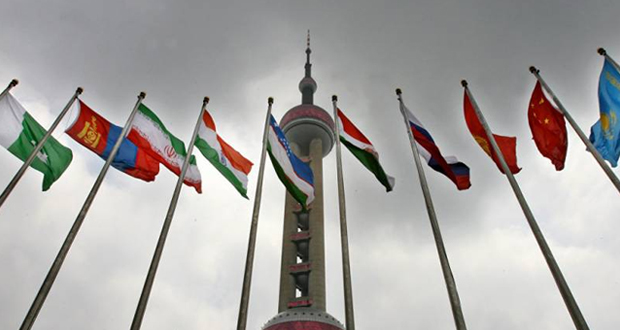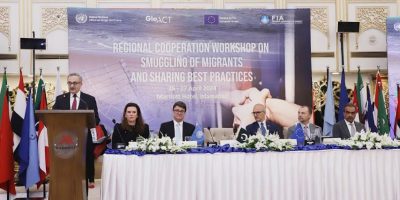SCO and Pakistan

Prof. Zamir Ahmed Awan
The Shanghai Cooperation Organization (SCO), created in Shanghai, China, on 15 June 2001, is a political, economic, and security organization of Eurasian in nature. Originally it includes 6 countries only, named as: China, Kazakhstan, Kyrgyzstan, Russia, Tajikistan, and Uzbekistan.
Later on Pakistan and India also joined on 9 June 2017 at a summit in Astana, Kazakhstan. Currently it has 8 members and 4 observer states like: Afghanistan, Belarus, Iran and Mongolia.
There are also 6 dialogue partners too, which includes: Armenia, Azerbaijan, Cambodia, Nepal, Sri Lanka and Turkey. They hold summit meeting every year in one of member country. This year the annual summit is scheduled to be held in June 2018 in Qingdao city, China.
Government of Pakistan gives it very high importance and committed to actively participate. Pakistan will attend this summit for the first time as full member and President of Pakistan has consented to attend it.
SCO as an organization was very much looking forward to Pakistan and joining as full members. This Eurasian entity could never achieve its objectives of security and connectivity without participation of Pakistan.
Pakistan believes in regional cooperation and has been always actively promoting regional Peace, Stability and Development. Pakistan’s role in Afghanistan, was acknowledged by the world.
Pakistan was an active player in RCD (Regional Cooperation and Development) along with Iran and Turkey. Pakistan’s role in OIC was always lauded. Pakistan was major contributor of SAARC (South Asian Association for Regional Cooperation). Pakistan always stands with oppressed and condemned aggressors. Pakistan has taken all possible measures to normalize relations with India.
Pakistan is the major contributor of Peace Keeping Force for UN and our role for peace was always praised world-wide. The latest is One Belt One Road (OBOR) mega initiative of China, where Pakistan is Flagship partner as China-Pakistan Economic Corridor (CPEC).
Pakistan is moving forward with its “Trade not Aid” policy and has been pushing for greater connectivity. Heavy investments have been carried out under the flagship CPEC project to enhance connectivity, trade and all dimension friendship. Pakistan has successfully carried out anti-insurgency campaigns in its tribal areas. Terrorism related incidents have been reduced tremendously.
Pakistan believes that regional cooperation and connectivity will promote regional peace, and economic development. Especially, Central Asian states, with whom we have strong historic bonds of culture, traditions, religion, trade and ethnicity.
We share similar issues and problems. We firmly believe only cooperation amongst us, can help us to overcome our common challenges faced today.
In terms of contributing to the SCO, Pakistan can offer its assistance in anti-terror mechanisms as Pakistan has big success in overcoming terrorism in the last few years. Our experience may be shared with SCO states. As all of the SCO member countries are a part of the OBOR project (except India).
Pakistan, due to its geo-strategic location, can facilitate its connectivity projects to link Central-Asia, China and Russia to each other and through the Arabian Sea to the Oil-rich Persian Gulf, the Gulf of Aden and the Horn of Africa.
It will boost the economic activities for SCO member states. We already have a common ground and already there exists some kind of cooperation like: CPEC, TAPI, CASA 2000 and the long stalled IPI project. Pakistan’s geo-strategic location is vital and crucial for connectivity and trade. It will shorten the transportation distance, reduce transportation costs and save transportation time. Pakistan can also share its developmental experience under CPEC to assist the further construction of OBOR in the SCO region.
Pakistan is already contributing a lot in terms of educational exchanges. The number of Pakistani students present in only one member state is far greater than the number of students present of the member states in Pakistan combined.
Pakistan is an English speaking country as its official language , can contribute a lot to SCO member states in term of Education, S&T, R&D and Innovations.
In terms of what Pakistan expects, is a greater connectivity to realize Pakistan’s security and economic concerns.
An increasing share in the Central-Asian markets to Pakistani products would be a priority for Pakistan. Pakistan is particularly interested in a mechanism where Pakistan can engage with all countries of this region and focus on all-dimension development at faster pace.
As countries sharing the same neighborhood we have common problems and the solutions are interlinked with each other. Pakistan believes that a sustainable development can be achieved only when your neighbors are prosper and satisfied.
Pakistan expects the SCO to play a role in Afghanistan’s stability so that connectivity among SCO sates through Afghanistan can be availed.
It is expected that SCO will be expand further and may include more countries. The expected new entrants may be Iran, Turkey, Afghanistan, Belarus and Mongolia.
All of these countries have a very friendly relationship with Pakistan already. SCO covers more than half of world’s population, more than half of world’s area, and major part of natural resources, yet suffering, the menace of extremism, terrorism, drug trafficking and poverty. On the contrary there also exists a huge potential of growth in this part of the world.
Pakistan is very optimistic regarding its future with the SCO. Pakistan is devoted to contribute wholeheartedly to SCO.
Under SCO platform, all member states will be availing CPEC’s facilities and this relationship will grow further in all dimensions. It is hoped that we will achieve our common goal of “Peace, Stability, Connectivity, Development and Prosperity”.
Author: Prof. Zamir Ahmed Awan, Sinologist (Ex-Diplomat), National University of Sciences and Technology (NUST), Islamabad, Pakistan. E-mail: [email protected]
巴基斯坦, 国立科技大学, 中国学研究中心, 泽米尔 阿万 。
Related News

UNODC, Pakistan join hands to combat smuggling of migrants
ISLAMABAD, APR 26 /DNA/ – The Federal Investigation Agency (FIA) and the Ministry of ForeignRead More

Complete independence impossible without economic stability: COAS
RAWALPINDI, APR 26: Chief of Army Staff (COAS) General Asim Munir on Friday said thatRead More


Comments are Closed